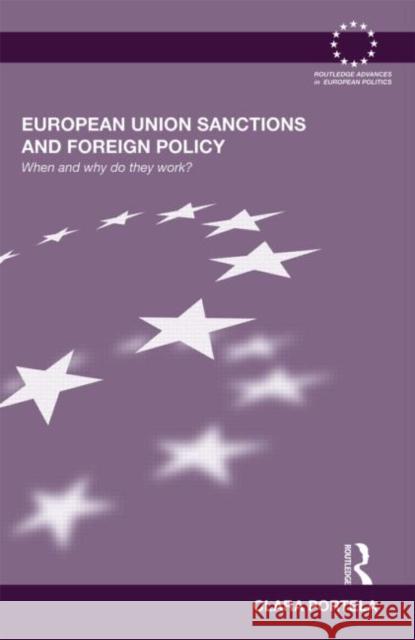European Union Sanctions and Foreign Policy: When and Why Do They Work? » książka
European Union Sanctions and Foreign Policy: When and Why Do They Work?
ISBN-13: 9780415552165 / Angielski / Twarda / 2009 / 208 str.
European Union Sanctions and Foreign Policy: When and Why Do They Work?
ISBN-13: 9780415552165 / Angielski / Twarda / 2009 / 208 str.
(netto: 743,28 VAT: 5%)
Najniższa cena z 30 dni: 705,23
ok. 16-18 dni roboczych.
Darmowa dostawa!
Winner of the THESEUS promising award for Research on European Integration 2011. Sanctions are an important tool within the foreign policy of the European Union, which have until now remained obscure to both scholars and the general public. This book examines sanctions as a political tool of influence and evaluates the efficacy of sanctions imposed by the EU against third countries and their ability to bring about the desired outcome. While the principal sanctions activity of the EU takes place under the Common Foreign and Security Policy, the author also considers the suspension of development aid under the ACP-EU Partnership Agreement, the withdrawal of trade privileges under the Generalized System of Preferences and other sanctions outside these frameworks. Reviewing the sanctions practice of the EU in its virtual entirety, Portela assesses the relevance of classical sanctions theory by testing a series of hypotheses with empirical case-studies attempting to identify the determinants of success of EU sanctions. Enhancing our understanding of the EU's international role, this book will be of interest to students and scholars of international politics, security studies, EU studies, human rights and democracy, conflict management, IPE and development studies.
Sanctions are an important tool within EU foreign policy, which have until now remained obscure to both scholars and the general public. This book examines sanctions as a political tool of influence and evaluates the efficacy of sanctions imposed by the European Union (EU) against countries from the early 1990s to present day.
Portela focuses on EU sanctions in the non-commercial realm, in the absence of United Nations backing, and explains why sanctions worked in some cases and failed in others. Portela assesses both the material impact of the measures on the affected countries, and their ability to bring about the desired behavioural change in the targeted elites. Using four different legal frameworks within the EU, the author explores:
- Sanctions wielded in aid cut-offs under its partnership agreement with African-Caribbean and Pacific Countries (ACP).
- Measures imposed under its Common Foreign and Security Policy (CFSP).
- The withdrawal of unilateral trade preferences under the Generalised System of Preferences (GSP).
- Similar measures adopted outside any formalised legal framework.
It will be of interest to students and scholars of international politics, human rights and democracy, EU studies, international security, conflict management and peace studies, IPE and development studies.











